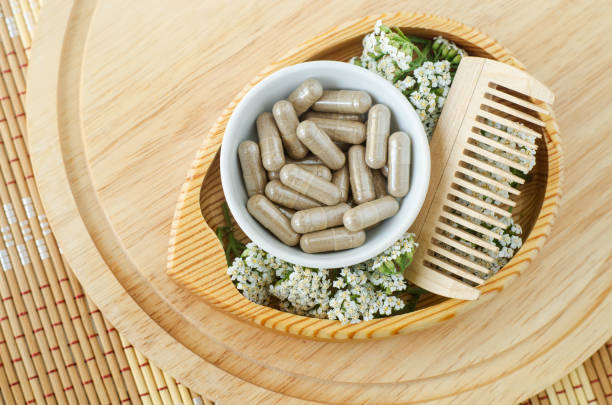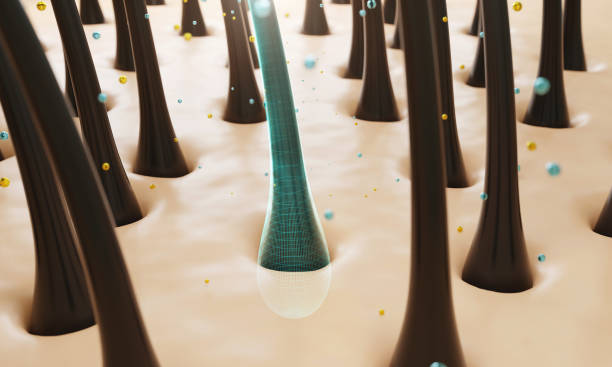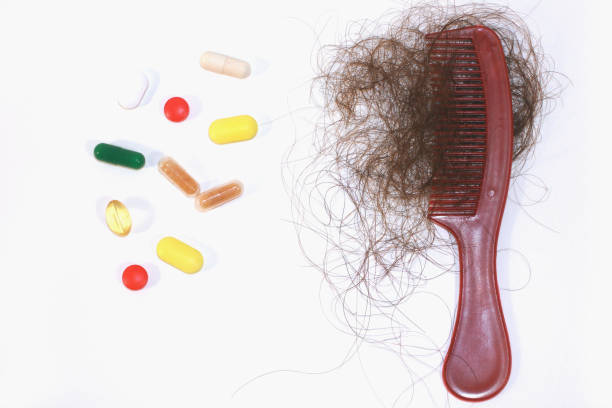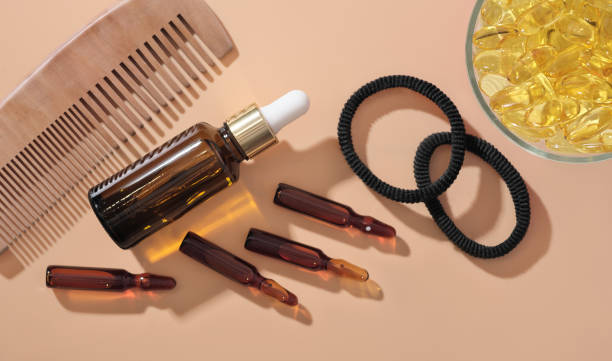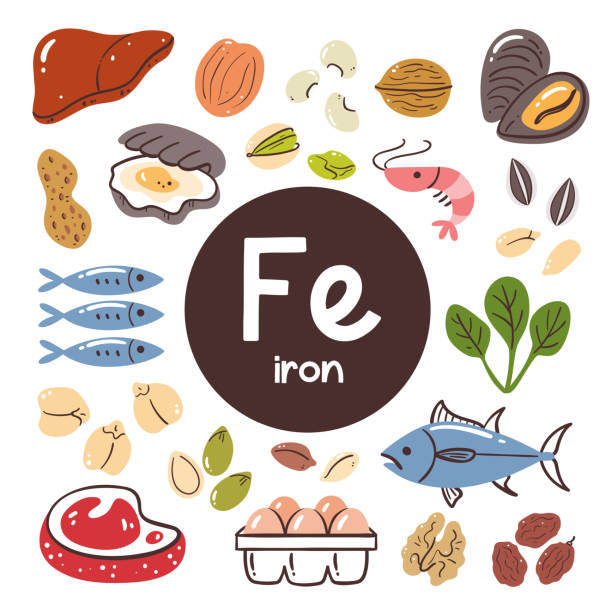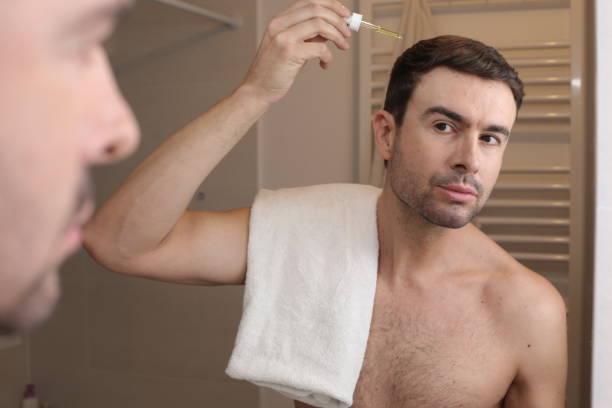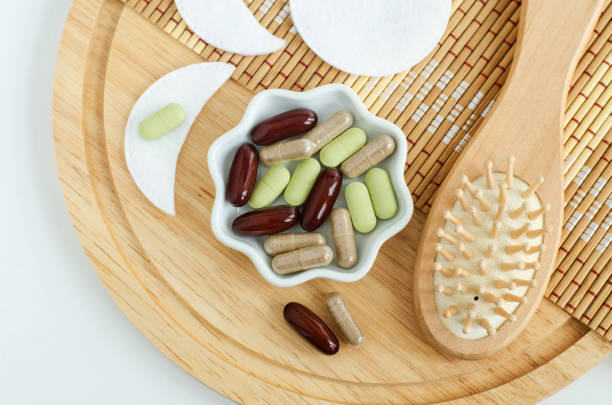Table of Contents
ToggleSupplements have gained attention as natural alternatives for promoting hair health. Made from natural ingredients, such as vitamins and herbs, these supplements aim to provide essential nutrients to stimulate hair growth. Hair’s impact on appearance, self-esteem, and well-being makes it a topic of interest. Various factors affect hair growth, including genetics, diet, stress, and hormones.
While organic supplements are popular for their perceived safety and benefits, their effectiveness is debated, with limited supporting evidence. Some may interact with medications, and long-term effects remain unclear. This article examines the scientific evidence, evaluating the potential benefits and risks of using organic supplements for hair health.
The Science Behind Hair Growth
Hair growth is a complex process that involves several stages and is influenced by a variety of factors.
Understanding the science behind hair growth is essential to maintain healthy hair and preventing common hair problems.
Hair Growth: An Overview of the Process
Hair growth is a complex process that involves several stages and is influenced by various factors.
The hair growth cycle consists of three phases: the anagen phase, the catagen phase, and the telogen phase. During the anagen phase, the hair grows actively for 2-7 years, followed by the catagen phase, where growth slows down, and the follicle begins to shrink. Finally, during the telogen phase, the hair rests, and eventually falls out, making way for new hair growth.
Factors Influencing Hair Growth
Several factors can influence hair growth, including genetics, age, diet, stress, hormonal imbalances, and medical conditions.
Genetic factors play a significant role in determining hair type, texture, and growth rate. Age-related changes, such as decreased hormone levels, can cause hair to become thinner and grow slower. Poor nutrition, stress, and medical conditions such as thyroid disease and autoimmune disorders can also affect hair growth.
Common Hair Problems and their Causes
Common hair problems such as hair loss, breakage, and dandruff are caused by various factors. Hair loss can be caused by genetic factors, hormonal imbalances, medical conditions, and certain medications. Hair breakage can result from heat damage, chemical treatments, and rough handling. Dandruff is a common condition caused by yeast overgrowth on the scalp, resulting in a flaky and itchy scalp.
Preventing and Treating Hair Problems
Maintaining a healthy lifestyle and avoiding harmful hair practices can promote healthy hair growth and prevent damage.
Eating a balanced diet rich in vitamins and minerals, avoiding excessive heat styling and chemical treatments, and using gentle hair care products can help prevent hair breakage and other common hair problems. For those experiencing hair loss or other more severe hair problems, consulting a dermatologist or hair care specialist may be necessary to determine the underlying cause and appropriate treatment.
Understanding Organic Supplements for Healthy Hair Growth
Supplements are natural products derived from plants or animals that are taken as dietary supplements to support and improve overall health.
These supplements are popular among people who want to avoid synthetic chemicals and additives commonly found in traditional supplements.
Types of Natural Supplements for Hair Growth
When it comes to hair growth, there are several types of organic supplements that can help hair growth and prevent hair loss.
One such supplement is biotin, a B vitamin that helps strengthen hair follicles and promotes hair growth. Another popular supplement is collagen, which helps improve hair elasticity and prevent breakage.
Additionally, omega-3 fatty acids, found in fish oil supplements, can help improve hair health and promote growth.
How Organic Supplements Work to Promote Hair Growth
Organic supplements work by providing essential nutrients and vitamins to the body that are necessary for healthy hair growth.
These nutrients are often lacking in the average diet, which can lead to hair loss and other health problems. Organic supplements can help bridge this gap and provide the body with the necessary nutrients to prevent thinning hair.
Benefits of Using Organic Supplements Over Traditional Hair Growth Methods
There are several benefits to using organic supplements over traditional hair growth methods.
Organic supplements are made from natural ingredients, which means they are less likely to cause harmful side effects or interact negatively with other medications. Additionally, organic supplements are often more effective than traditional hair growth methods, as they provide the body with the necessary nutrients to support healthy hair growth from the inside out.
By incorporating natural supplements into your daily routine, you can provide your body with the necessary nutrients to support healthy hair growth and maintain overall health and wellness.
Popular Hair Growth Vitamins
If you’re looking for natural ways to help hair growth, organic supplements may be worth considering. Here are some of the most popular vitamins:
Biotin
Biotin, also known as vitamin B7, is a water-soluble vitamin that is essential for healthy hair growth. It helps to improve the strength and elasticity of hair, reduce breakage and increase thickness.
However, it is important to note that biotin alone may not be sufficient for hair growth, and it should be taken in combination with other vitamins and minerals.
Collagen
Collagen is a protein that provides structure and support to our skin, bones, and connective tissues. When it comes to hair growth, collagen is a great supplement to promote healthy hair. It boosts skin elasticity, which can improve the health of hair follicles and prevent hair breakage.
Collagen also helps combat hair loss by supporting the hair growth cycle and promoting the production of new hair cells. In addition, it may increase hair density by improving the thickness and fullness of individual strands. Therefore, including collagen in your diet can help you achieve stronger, healthier, and more voluminous hair.
Another reason why collagen is a good supplement for hair is that it contains amino acids that are essential for the formation of keratin, a protein that makes up the majority of our hair strands. By providing the necessary building blocks for keratin production, collagen can help improve the strength and resilience of our hair.
Iron
Iron is an essential mineral that is necessary for healthy hair. It helps to transport oxygen to the hair follicles, which is necessary for hair growth. Iron deficiency is a common cause of hair loss, so taking iron supplements may help to prevent hair loss.
Zinc
Zinc is a mineral that is essential for healthy hair growth. It is a vital nutrient that plays a crucial role in hair health. It is one of the key minerals required for hair growth, making it an essential supplement for individuals experiencing thinning hair.
Zinc helps to regulate hormones and enzymes that contribute to hair growth and repair. It also aids in the absorption of other hair growth vitamins, such as biotin and vitamin D, and promotes the production of collagen, which is essential for hair, skin, and nails. By including zinc in your diet or taking a zinc supplement, you can improve the overall health of your hair, resulting in stronger, shinier, healthier hair.
Vitamin D
Vitamin D is a crucial nutrient that is essential for maintaining healthy hair.
Thinning hair can be caused by a deficiency in hair growth vitamins, and Vitamin D is one of the most important hair growth supplements. Vitamin D is necessary for hair follicle cycling and the creation of new hair cells. It also helps to regulate the hair growth cycle and prevent hair loss. In addition, Vitamin D plays a role in the production of keratin, a protein that strengthens hair and promotes its overall health.
For those looking to improve their hair health, adding Vitamin D to their daily hair skin, and nails routine can be a beneficial step.
Vitamin E
Vitamin E is a potent antioxidant that can help in promoting hair growth by improving blood circulation to the scalp and nourishing the hair follicles. When the hair follicles receive enough nutrients, they can produce healthier and stronger hair strands, which can prevent hair thinning and breakage.
Vitamin E is also beneficial for hair, skin, and nails, as it can protect them from free radical damage caused by environmental stressors. Including vitamin E-rich foods in your diet or taking dietary supplements can ensure that your body gets enough of this vital nutrient to support hair growth.
Pros and Cons
While these organic supplements may be beneficial for hair growth, it is important to consult with a healthcare professional before taking any new supplements.
It is also important to note that supplements may not work for everyone, and individual results may vary.
Customer Reviews and Feedback
Customer reviews and feedback can provide valuable insight into the effectiveness of these supplements, but it is important to approach these reviews with a critical eye and consider multiple sources of information.
The Truth About Supplements for Hair Growth
Supplements have become increasingly popular in recent years as a natural solution for hair growth.
However, there are many myths and misconceptions surrounding these supplements. One of the most common myths is that organic supplements are guaranteed to work. The truth is that while some organic supplements may be effective for hair growth, there is no guarantee that they will work for everyone.
Results may vary depending on factors such as genetics, diet, and lifestyle.
Limitations
Another common misconception is that organic supplements are completely safe.
While these supplements may be natural, they can still have limitations and potential side effects. It is important to carefully research any supplement before using it and to consult with a healthcare professional to determine if it is safe for you.
Effectiveness
There are also limitations to the effectiveness of vitamins for hair growth. While some supplements may help to nourish and strengthen hair, they may not necessarily help hair growth.
In some cases, hair growth may be influenced more by factors such as hormonal imbalances or medical conditions.
Possible Side Effects
Lastly, it is important to be aware of potential side effects when using supplements. Some supplements may cause allergic reactions, interact with medications, or cause digestive issues.
It is important to carefully read the labels of any supplements and to only use them as directed.

